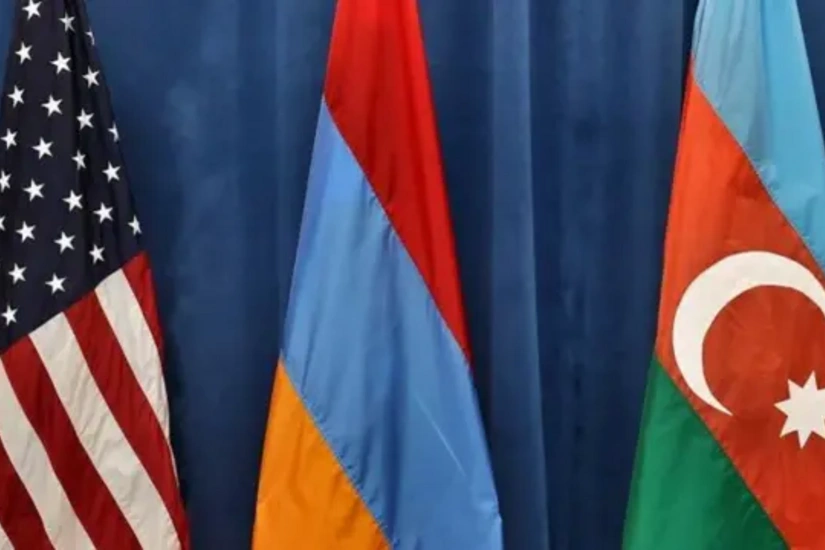Media: South Caucasus no longer Russia's backyard
- 27 August, 2025
- 16:39

The South Caucasus is no longer an arena of Russia's sole dominance; the US-Azerbaijan-Armenia summit in Washington has shown that other actors have the ability to influence processes, reads an article by political analyst for the South Caucasus and Eurasia Simona Scotti for the publication Commonspace, Report informs.
"For decades, Russia has stood at the centre of the South Caucasus" security order. No peace deal, no war settlement, no major infrastructure project could be imagined without Moscow"s involvement. Yet this year, for the first time in Azerbaijan"s modern history, that assumption has been openly challenged. A series of diplomatic clashes between Baku and Moscow, followed last week by the US-mediated summit in Washington, show that Azerbaijan is willing to confront Russia more directly than ever before, and that the South Caucasus may now be shifting away from Moscow at an accelerated pace," reads the article.
"The cracks began to show on 25 December 2024, when an AZAL passenger jet bound for Grozny crashed near Aktau, Kazakhstan. Preliminary Azerbaijani investigations suggested it had been mistakenly struck by a Russian Pantsir-S1 missile system. Thirty-eight people died. Baku"s response was sharper than most experts would predict: Russian cultural institutions were shut down, state media turned critical, and Moscow"s traditional mantle of an ultimate "arbiter" in the Caucasus was openly challenged. From then on, the spiral of mistrust only deepened. Cyber attacks against Azerbaijani state web portals conducted in February were later attributed to Russian hackers, an Azerbaijani MP was refused entry to an official event in Russia without warning or explanation, and Aliyev skipped the 80th Anniversary of the WWII Victory celebrations in Moscow in May. Russian authorities arrested and tortured to death Azerbaijani citizens in late June, further exacerbating the crisis; Baku retaliated with its own arrests and expulsions. Russian media began hosting commentators speculating about military pressure on Azerbaijan, a sign of how hostile the rhetoric had become.
At the same time, Moscow sought to shore up ties with Armenia, but even here its grip was slipping. Armenian leadership, disillusioned by Russia"s lack of support in the 2020 and 2023 wars, took a resolute position on diversifying the country"s foreign policy. Pashinyan"s historic visit to Türkiye in June 2025 symbolised a pivot long considered unthinkable, while Russian border guards left Yerevan"s Zvartnots airport earlier that year. The old monopoly of Russian influence is thus weakening," the author wrote.
"It was against this background that the Washington summit of 8 August unfolded. Hosted by Donald Trump, and bringing together Ilham Aliyev and Nikol Pashinyan, the meeting produced a string of breakthroughs: Baku and Yerevan initialled the peace agreement, which is reportedly to be signed once Armenia amends its constitution, both sides called for the dissolution of the defunct OSCE Minsk Group, and the long-contested Zangezur corridor was finally given a green light. What made this especially significant was not only the agreements themselves, but who guaranteed them. The corridor, once envisaged to be launched under the Russian security oversight, is now to function under the control of an American company, even carrying the label "Trump Route for International Peace and Prosperity" (TRIPP). In a nutshell, Washington has carved out a formal role for itself in the domain Russia once considered its preserve.
Russian reactions captured the unease. Maria Zakarova, the Russian Foreign Ministry"s spokesperson, claimed that "The Westerners aim to transfer the reconciliation process of Baku and Yerevan to their tracks". Others went further, likening the TRIPP to the creation of a U.S. military base. These warnings illustrate how symbolically charged the corridor has become. However, it would be misleading to frame this moment as Russia"s "loss" of the South Caucasus," reads the article.
"What has changed is that Russia"s role is no longer accepted by default. Taken together, these factors create space for both Azerbaijan and Armenia to bring in more actors and reduce their dependency on any single external guarantor. So, in substance, it is less about Russia"s exit and more about the diversification of partnerships.
The broader lesson is that the South Caucasus is no longer a single-power stage. Russia remains present and influential, but no longer uncontested, and the Washington summit has shown that space exists for others to shape outcomes."
 USD - 1.700
USD - 1.700 
 Azerbaijani Version
Azerbaijani Version  Russian Version
Russian Version